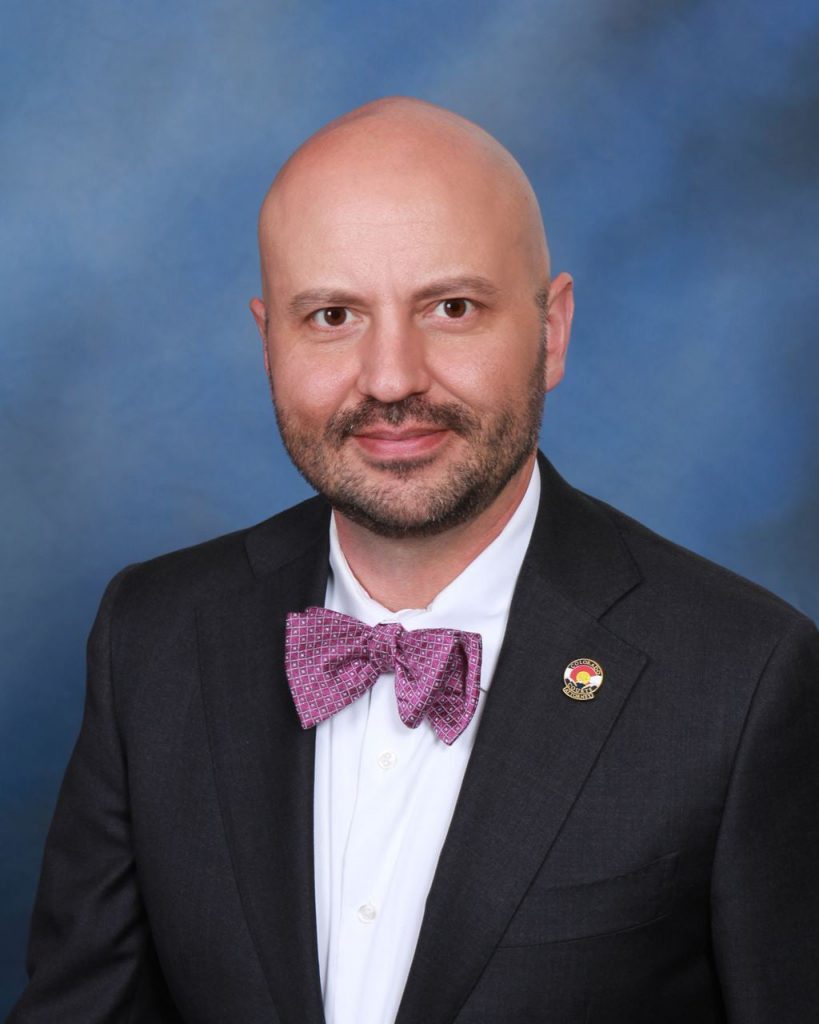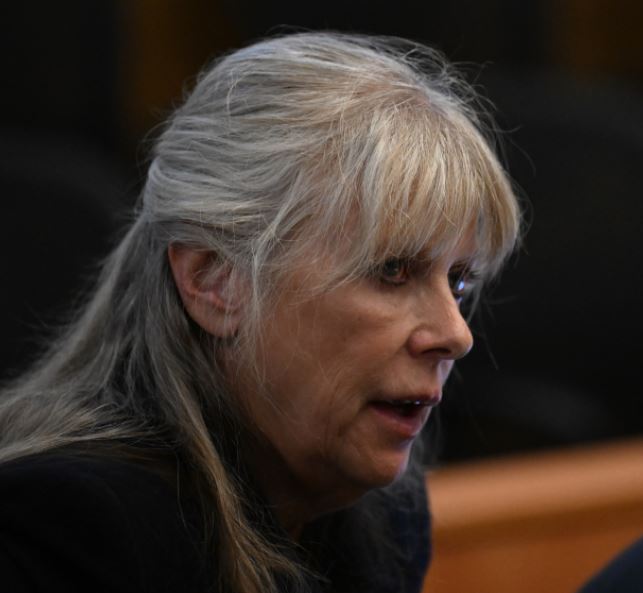What are the ethics of prosecuting the law? How are lawyers supposed to conduct themselves? How are those ethics enforced? And what does serving the interests of justice mean?
Those are the questions that have defined the investigation, prosecution, and disbarment of former 11th Judicial District Attorney Linda Stanley over the course of 2024. While in retrospect, Stanley’s actions might have seemed to obviously disqualify her as an attorney in Colorado, the decision to revoke her ability to work as an attorney was not made lightly by the three-person panel in October of 2024, and it was not made unanimously as the final vote on disbarment was two-to-one. The one dissenting vote felt that a lengthy suspension was more appropriate rather than disbarment.
The consequences of that disbarment for Stanley have been profound. She was replaced by Jeff Lindsey, a former Deputy District Attorney who had worked for her and resigned when it became clear to him that Stanley was not capable of prosecuting the highly publicized Barry Morphew criminal trial (he was running unopposed against Stanley). In addition, three of the four counties that make up the 11th Judicial District sued Stanley in December in an effort to recoup over $112,000 in legal fees that they claim she inappropriately spent defending her professional career from the Office of Attorney Regulation Counsel. Indeed, Stanley’s sense of frustration was palpable when she took the lawsuit served to her at her mountain cabin near Guffy and threw the documents in the dirt.
But despite all that has happened over the past few months, one path to save her career and end the lawsuit against her remains open: appealing her disbarment to the Colorado Supreme Court. If Stanley could have the disbarment hearing ruled improper and her attorney’s license restored, the civil case filed against her would likely end. The law states that an attorney who is investigated but found to have done nothing wrong can be reimbursed by the counties the District Attorney’s Office serves. In many ways, this appears to be a long shot, but for Stanley, it is the only shot she currently has.
On December 20, Stanley and her attorney, Steve Jensen, filed a 46-page, 9,480-word brief (20 words short of the 9,500-word limit) that asked the Supreme Court to overturn the disbarment that concluded with the plea, “Ms. Stanley’s sanction should be reduced to a sanction other than disbarment.”
One note to the readers is that the Office of Attorney Regulation Council (OARC) is part of the Colorado Supreme Court, and the hearings held in June regarding Stanley’s ethical conduct as an attorney were not part of a criminal or civil lawsuit. These hearings are rare, and it is even rarer for an attorney to be disbarred for ethical violations. The rules that govern these hearings are not part of the typical judicial system process, so the rules applied are different from those for criminal or civil court cases.
Stanley asked the Colorado Supreme Court to review seven issues with the hearing that ultimately led to her disbarment. Still, only the first issue appears to have the ability to reverse the decision. Stanley asks the court, “Should Presiding Disciplinary Judge Bryon Large have been disqualified from hearing Linda Stanley’s case?”

Stanley claims that Judge Large should have been disqualified from hearing Linda Stanley’s case because, in the past, he had been part of a team that had successfully prosecuted Stanley for misconduct in 2019, right before Stanley ran for Office of the District Attorney in the 11th Judicial District. As Stanley’s Opening Brief states, “Presiding Disciplinary Judge Bryon Large should have been disqualified from hearing Linda Stanley’s case. Because he had previously prosecuted Ms. Stanley as regulation counsel for OARC and his prior colleague and supervisor, who also was involved in that prior case, were prosecuting this case, and because he failed to make a required disclosure regarding his relationship with those colleagues, he should be deemed disqualified under the applicable legal standards articulated in Sanders v. People.”
At first reading, Sanders v. People seems like an odd case to cite as it revolves around a Judge who oversaw a trial about a man, Kalil Jamandre Sanders, who, in a fit of road rage, shot at a car in front of his, severely injuring the driver. At the start of the trial, the Judge announced that he had once had a car hit by random gunfire on his way to a meeting but that he did not feel that this would impact his impartiality in the case as the incident was not part of road rage and he was not injured.
After the jury found Sanders guilty, Sander’s legal team appealed the decision to the Colorado Supreme Court, citing the United States and Colorado Constitutions that guarantee a fair trial from an unbiased court under the Due Process Clause. While Saunders did not get what he wanted (the Supreme Court ruled the judge had acted reasonably and fairly), this case gives the guidelines for what an impartial judge is and how to identify an unfair trial.
In their opinion, the Supreme Court ruled that a judge is required to recuse themselves “when the circumstances establish an objectively reasonable probability that the judge will be unable to deal fairly with a party.” For Stanley, the fact that Bryon had worked for the prosecutor in 2019, which ended up censuring Stanley, means it was not possible for Bryon to be impartial as the Disciplinary Judge.
This strategy by Stanley is likely enough to get the attention of the Colorado Supreme Court. However, as has become expected of Stanley over the past few years, the OARC claims that they cannot respond to the Opening Brief as it was done improperly. The OARC did not file its Opening Brief but instead filed a scathing motion to strike Stanley’s Brief for failure to comply with record citation rules on appeals.
That story will be published by the Tribune soon.
Jordan Hedberg

